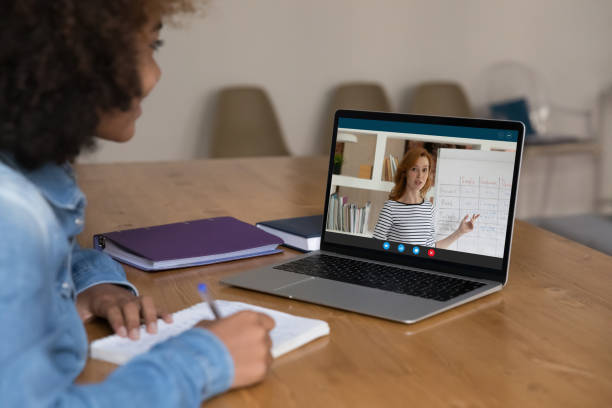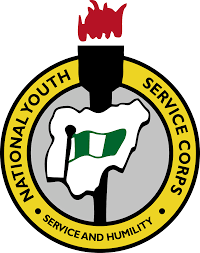Free Coding Classes for Beginners
In today’s digital world, coding is one of the most valuable skills you can learn. Whether you want to build websites, create mobile apps, dive into data science, or even develop video games, coding opens up endless opportunities. But what if you don’t have the budget for expensive coding boot camps or college degrees?
Good news! There are plenty of free coding classes for beginners that can help you get started. In this blog post, we’ll explore some of the best platforms where you can learn to code for free, what programming languages you should start with, and tips for successful learning.
Why Learn to Code?
Before we dive into the free resources, let’s look at some of the reasons why learning to code is a great idea:
✅ High Demand: Software development is one of the fastest-growing career fields worldwide.
✅ Great Salary Potential: Even entry-level programmers can earn well-paying jobs.
✅ Flexibility: Many programming jobs allow you to work remotely.
✅ Entrepreneurial Opportunities: You can build your own websites, apps, or even start a tech business.
✅ Problem-Solving Skills: Coding improves logical thinking and creativity.
Best Free Coding Classes for Beginners
Here are some of the top free platforms where you can learn to code from scratch:
1. Harvard’s CS50 (edX)
Harvard University offers CS50: Introduction to Computer Science, a world-renowned free course available on edX. This course teaches fundamental programming concepts in a structured and engaging way.
What You’ll Learn:
✔️ Introduction to computer science concepts
✔️ Programming in C, Python, and JavaScript
✔️ Algorithms, data structures, and web development
✔️ Hands-on coding projects
Best For:
Beginners who want a university-level coding experience without paying tuition fees.
2. freeCodeCamp
freeCodeCamp offers hundreds of free coding courses that cover everything from basic HTML to advanced machine learning.
What You’ll Learn:
✔️ Web development (HTML, CSS, JavaScript)
✔️ Python and data science
✔️ Cybersecurity and networking
✔️ Machine learning and AI
Best For:
Self-learners who want hands-on projects and a structured curriculum.
3. Codecademy (Free Plan)
Codecademy provides interactive coding lessons, allowing you to practice coding directly in your browser.
What You’ll Learn:
✔️ Basics of Python, JavaScript, Java, SQL
✔️ Web development with HTML, CSS, and React
✔️ Data science and analytics
✔️ Computer science foundations
Best For:
Absolute beginners who prefer hands-on learning with interactive exercises.
4. The Odin Project
The Odin Project is a free, full-stack web development course with real-world projects.
What You’ll Learn:
✔️ HTML, CSS, and JavaScript
✔️ Git and GitHub
✔️ Backend development with Node.js
✔️ Full-stack development (frontend + backend)
Best For:
Aspiring web developers looking for structured guidance and hands-on projects.
ALSO READ: Top Universities for Computer Science Degrees
5. MIT OpenCourseWare (OCW
MIT offers free university-level courses in programming, available online. Their Introduction to Computer Science and Programming in Python course is perfect for beginners.
What You’ll Learn:
✔️ Python programming basics
✔️ Computational problem-solving
✔️ Algorithms and data structures
Best For:
Students who want in-depth theoretical knowledge along with practical coding exercises.
6. W3Schools
W3Schools is a great beginner-friendly coding tutorial website. You can learn web development, Python, SQL, and more.
What You’ll Learn:
✔️ HTML, CSS, and JavaScript for web development
✔️ SQL databases
✔️ Python programming
Best For:
Beginners who want quick and easy-to-follow coding tutorials.
7. Khan Academy – Computer Programming
Khan Academy offers fun, interactive coding lessons designed for beginners.
What You’ll Learn:
✔️ JavaScript and HTML/CSS for web development
✔️ Computer programming fundamentals
✔️ Computer science concepts
Best For:
Beginners who want a visual and interactive way to learn coding.
8. Coursera (Free Courses)
Many universities offer free programming courses on Coursera, including Stanford and the University of Michigan.
What You’ll Learn:
✔️ Python, Java, JavaScript
✔️ Data science and AI
✔️ Full-stack web development
Best For:
Students looking for university-backed courses with structured lessons.
Which Programming Language Should Beginners Start With?
If you’re wondering which language to learn first, here’s a quick guide:
- Python 🐍 → Best for beginners, AI, and data science
- JavaScript 🌍 → Best for web development
- HTML & CSS 🖥️ → Best for building websites
- Java ☕ → Best for mobile apps and enterprise software
- C++ 💻 → Best for game development and system programming
If you’re not sure where to start, Python is a great beginner-friendly choice.
Tips for Learning to Code Successfully
🔹 Practice Daily – Coding is like a muscle; the more you practice, the better you get.
🔹 Build Small Projects – Apply what you learn by creating simple apps or websites.
🔹 Join Coding Communities – Participate in coding forums like Stack Overflow, Reddit, and GitHub.
🔹 Work on Open-Source Projects – Collaborate with other programmers to gain experience.
🔹 Be Patient and Have Fun! – Learning to code takes time, but with consistency, you’ll improve.
Frequently Asked Questions – FAQs
In this section, I will provide you with FAQs and answers on Free Coding Class for Beginners. Keep on reading dear friend.
1. Can I really learn to code for free?
Yes! Many platforms like freeCodeCamp, CS50 (Harvard), The Odin Project, and W3Schools offer completely free coding courses. You don’t need to pay anything to start learning programming.
2. Which programming language should beginners start with?
- Python – Best for beginners, AI, and data science
- JavaScript – Best for web development
- HTML & CSS – Best for building websites
- Java – Good for mobile apps and enterprise software
- C++ – Useful for game development and system programming
If you’re unsure, start with Python because it’s beginner-friendly.
3. How long does it take to learn coding?
It depends on your commitment:
- 1-3 months – Learn basic web development (HTML, CSS, JavaScript)
- 3-6 months – Get comfortable with Python or JavaScript and start building small projects
- 6-12 months – Become job-ready if you practice consistently and work on real-world projects
4. What are the best free coding platforms?
Some of the best free coding platforms include:
- Harvard’s CS50 on edX (Computer Science basics)
- freeCodeCamp (Full web development, Python, and more)
- The Odin Project (Full-stack development)
- Codecademy (Free Plan) (Interactive exercises)
- W3Schools (Simple tutorials for quick learning)
5. Do I need a computer to start learning to code?
Yes, having a computer is ideal. However, some platforms like SoloLearn and Mimo offer mobile apps where you can learn coding on your phone.
6. Can I get a job after learning to code for free?
Yes! Many self-taught programmers have landed jobs by learning from free resources. To increase your chances:
- Build real projects (websites, apps, etc.)
- Create a GitHub portfolio
- Participate in coding challenges (LeetCode, Codewars, Hackerrank)
- Apply for internships and freelance projects
7. How do I stay motivated while learning to code?
- Set small, achievable goals (e.g., build a simple website in a week)
- Join online coding communities like Reddit, Stack Overflow, and GitHub
- Take breaks and avoid burnout
- Work on projects that interest you
8. Are there free coding courses with certificates?
Yes! Some platforms provide free certificates upon completion:
- freeCodeCamp (Earn certificates in web development, Python, etc.)
- Harvard’s CS50 on edX (Audit for free, but pay for a verified certificate)
- Google’s Python Course (Free with a badge)
- IBM Data Science on Coursera (Free audit, paid certificate)
9. Do I need math skills to learn coding?
Basic math is helpful, but you don’t need advanced math to start coding. If you plan to go into data science, AI, or game development, you may need to learn algebra and statistics.
10. What’s the best way to practice coding?
- Build small projects (To-do lists, calculators, weather apps)
- Solve coding problems on HackerRank, LeetCode, or CodeWars
- Contribute to open-source projects on GitHub
- Join hackathons and coding competitions
11. Can kids learn coding for free?
Yes! Platforms like Scratch (MIT), Code.org, and Khan Academy offer free coding lessons designed for kids.
12. What is the easiest programming language to learn?
Python is the easiest programming language for beginners because its syntax is simple and readable.
13. How do I get help if I’m stuck while coding?
- Google your problem (Most coding errors have been solved before)
- Ask for help on Stack Overflow, Reddit, or Discord coding communities
- Join a coding forum or study group
14. Can I learn to code without a degree?
Yes! Many self-taught programmers get jobs without a degree. Companies like Google and Apple hire based on skills, not just diplomas.
15. What’s the difference between front-end and back-end development?
- Front-end → Focuses on the user interface (HTML, CSS, JavaScript)
- Back-end → Handles the logic, databases, and servers (Python, Node.js, SQL)
- Full-stack → Combines both front-end and back-end skills
16. Where can I find free coding books?
Some great free coding books:
- Eloquent JavaScript – https://eloquentjavascript.net/
- Python for Everybody – https://py4e.com/
- You Don’t Know JS (JavaScript) – https://github.com/getify/You-Dont-Know-JS
17. Can I start freelancing after learning coding for free?
Yes! Once you’re comfortable with coding, you can start freelancing on platforms like:
- Upwork
- Fiverr
- Freelancer.com
- Toptal
Start with small projects like website design, bug fixes, or automation scripts.
18. What’s the best free coding class for beginners?
If you want an interactive coding class, try freeCodeCamp or Codecademy (Free Plan).
If you want a structured university course, try Harvard’s CS50 on edX or MIT OpenCourseWare.
19. Can I switch careers to tech by learning coding for free?
Yes! Many people transition into tech by learning coding online for free. Start by choosing a focus area (web development, data science, etc.), build a portfolio, and apply for jobs.
20. Where can I practice coding problems for free?
- LeetCode (Best for coding interviews)
- HackerRank (Challenges for different languages)
- CodeWars (Fun coding challenges)






